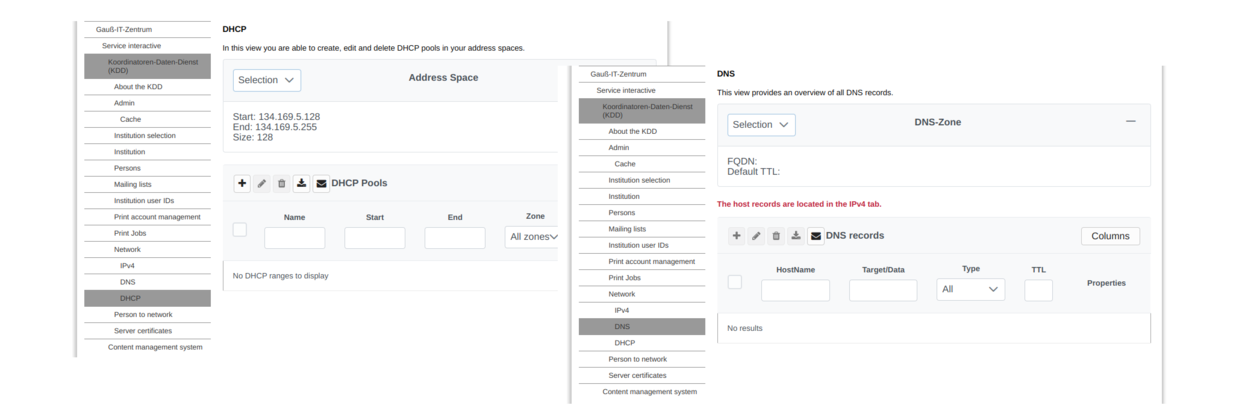
DHCP: A DHCP (Dynamic Host Configuration Protocol) is a network protocol that enables the automatic configuration of IP addresses and other network parameters in a computer network. The DHCP server is responsible for assigning IP addresses to computers or other devices on the network. The Gauß-IT-Zentrum offers DP coordinators of your institute the possibility to use the so-called Dynamic Host Configuration Protocol (DHCP) via the self-service interface of the coordinator data service (KDD) for the computers of your data network area. DHCP allows computers to be automatically integrated into the data network without having to configure them manually.
DNS: DNS stands for Domain Name System. It is a basic network protocol used to convert user-friendly domain names such as "tu-braunschweig.de" into numeric IP addresses such as "192.0.2.1", which are used by computers to locate resources on the Internet. The Gauß-IT-Zentrum operates several official DNS servers. A distinction is made between DNS servers, which are responsible for the TU namespace (domains "tu-braunschweig.de" and "tu-bs.de") as part of the worldwide database and manage this data authoritatively, and so-called resolvers (see below) or caching DNS servers, which take over the task of recursive name resolution for clients and temporarily store the answers in a cache if necessary. For DP coordinators: In order for the DNS system to correctly translate names into IP addresses of an institute, this information must be available in the database of the Gauß-IT-Zentrum. In addition, it is possible for DP coordinators to request DNS alias entries in the DNS system below the domain tu-braunschweig.de.